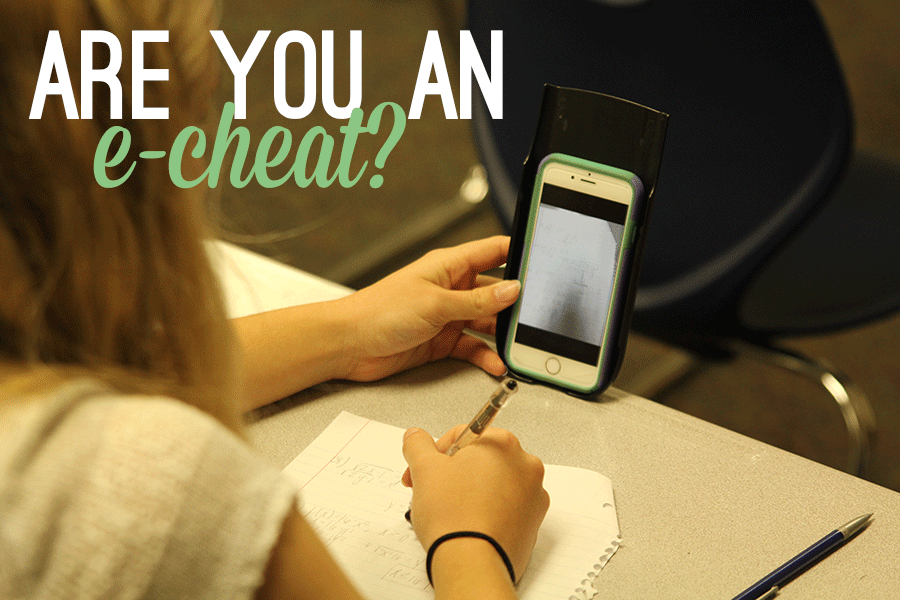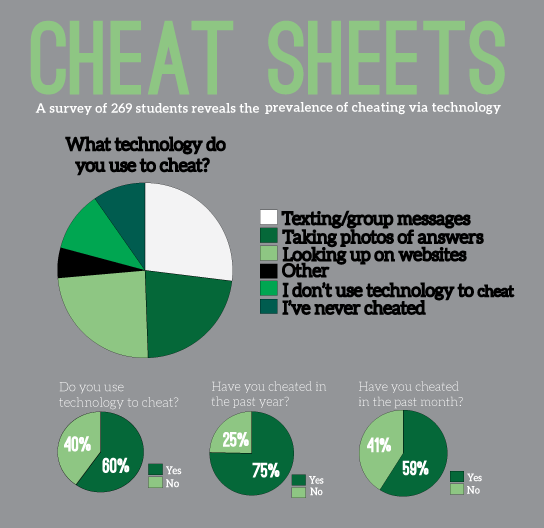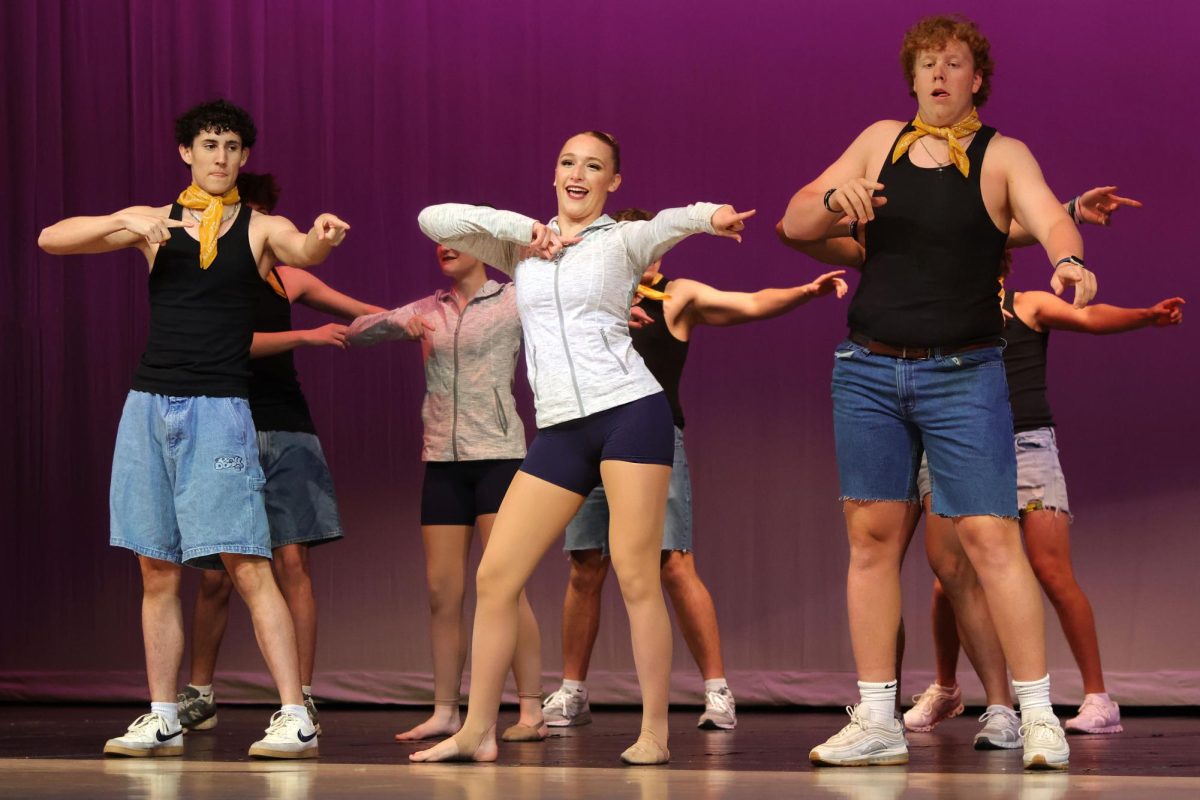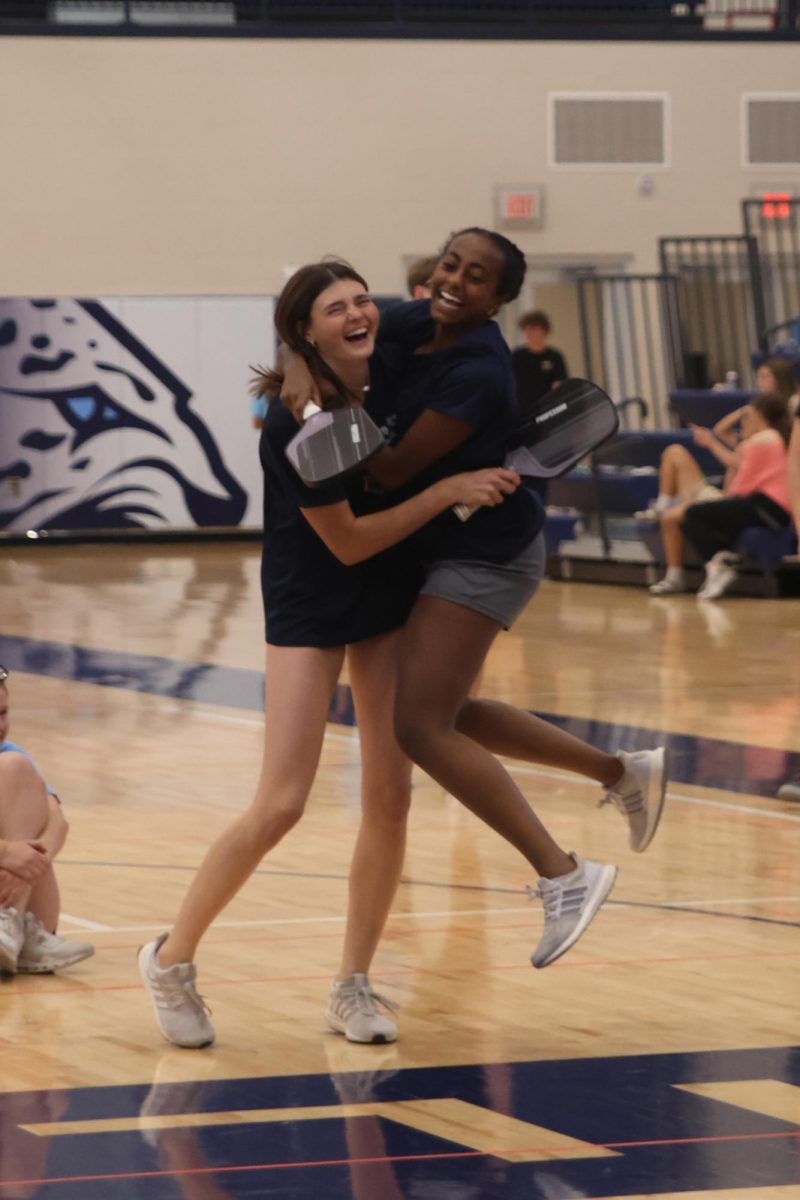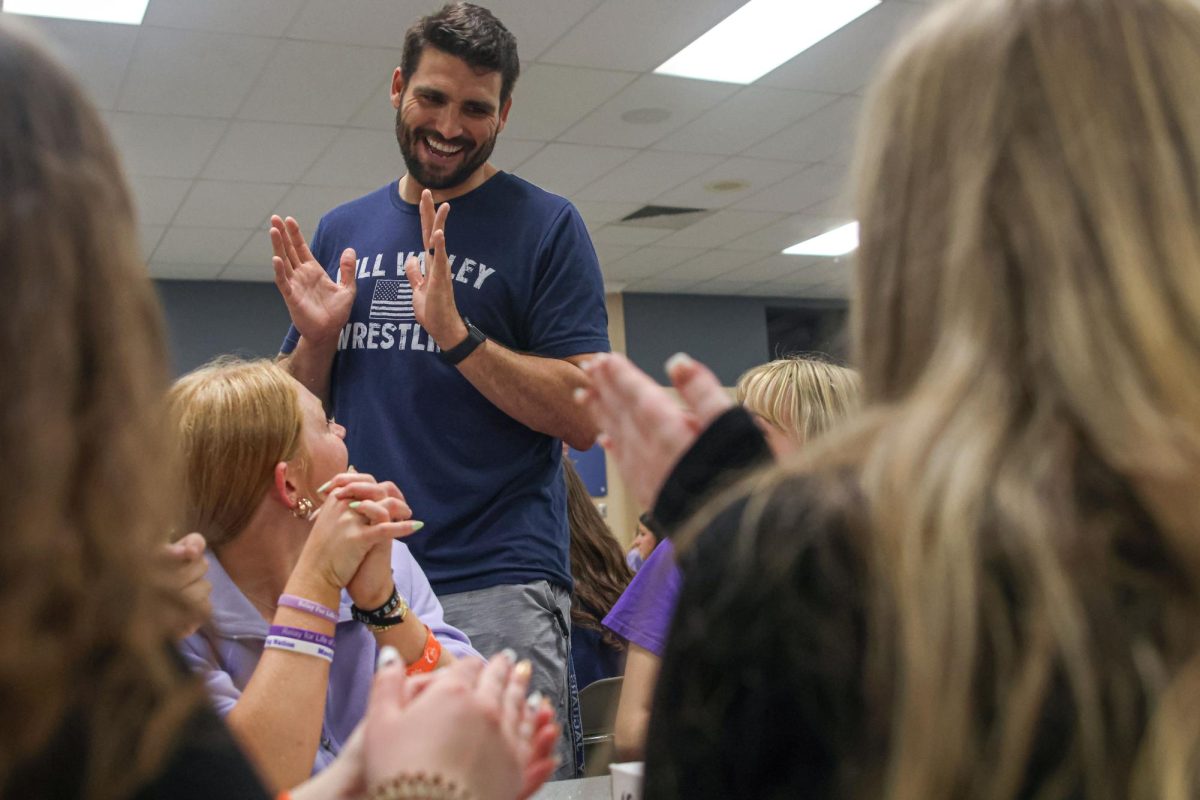Cheating becomes more prevalent with technology
Technological advances have made it easier to find new ways for students to cheat
December 15, 2015
Late on a Sunday night, an anonymous junior girl finishes her last homework assignment for the weekend with the help of her classmates’ answers sent in a group message. She completed what otherwise would have taken an hour or more in less than ten minutes. However, with the power of technology at her fingertips and the overwhelming number of students using the same methods to complete assignments, the anonymous junior doesn’t think much of it.
Some of these students, like the anonymous junior girl, believe that students and teachers focus too much on cheating in the classroom and not enough on cheating that happens outside of school.
“I think cheating is looked at now as when you [cheat] just on a test,” the anonymous junior girl said. “If you use other sources or copy down homework, that’s also cheating, but because of technology now, it’s not looked at as cheating.”
However, sophomore Cori Carver thinks there are definite boundaries when considering what it means to cheat.
“I think the lines [for cheating] are pretty clear. If you’re stealing someone else’s work that isn’t yours, that’s obviously cheating,” Carver said. “There’s a pretty clear definition and line between what’s OK and what’s not.”
Associate principal Leah Vomhof refers students to page nine of the student handbook for details on forms of academic misconduct, including cheating, plagiarism, obtaining an unfair advantage and aiding and abetting academic dishonesty. According to policy, “a student who engages in any form of academic misconduct will forfeit credit for the work in question and also be subject to additional disciplinary measures.”
With the new opportunities to cheat that arise with new technology, Vomhof acknowledges that academic misconduct has become more common in classrooms. However, she does not see the rising popularity as an excuse not to do work.
“The Internet doesn’t teach you how to think. The Internet doesn’t teach you how to analyze. If students are going there just to get information, that’s not OK because they’re not learning it,” Vomhof said. “We have to really encourage students to think and come into the classroom ready to discuss those ideas that maybe they found on the Internet, but then they can come in and talk about in a new or unique way.”
One of the ways technology has made cheating so easy is the use of group messages. Students are able to form group messages in order to share their answers to a homework assignment so others can copy them down.
“Group messages have definitely affected classes where you have the same homework [as others],” the anonymous junior girl said. “It just [gives easy access to] what you need to find and that definitely delays the learning of those subjects.”
In one case of cheating last year, several students in a Physics class obtained pictures of answer keys to a test. With the help of group messages and mass texting, those answers spread to other students taking the course within a matter of days, according to an anonymous senior girl who was among those who initially saw and sent the answer keys to other students.
“I only sent them to one person and it just kind of spiraled from there. There were other people that were standing around and saw that we took pictures, so … we started a group message and everyone sent it out,” the anonymous senior girl said. “I felt awful about it. At first, I felt like it was wrong to do it, and as it progressed and [the answers] got out, I knew it shouldn’t be happening.”
Substitute teacher Diane Barger was teaching the physics class at the time, however on the day of the incident, Barger was absent and had a substitute teacher covering for her. On her return, she was disappointed to learn that students had taken pictures of the answer key and sent them to others and consequently required all of her classes to retake a new test.
“I don’t think students are understanding of how far-reaching what they do is,” Barger said. “When they cheat, it affects them, it affects the teacher, other teachers and administration. When a student’s caught cheating, it destroys the trust that [the] teacher and other teachers had with that student.”
Although it is easy to spread answers when students are given a key, like in math and science classes, English classrooms can also be subject to academic dishonesty, like plagiarism, according to English teacher Anna Nelson.
“I want my students to know that they need to learn the lesson now so if I catch them cheating on an essay or copying something I always try to talk to them about [it],” Nelson said. “These consequences are bad now but they’re going to be really bad in the future with paper writing in particular.”
Not only does cheating affect a student’s reputation, but Carver claims it takes away from students who put in the effort required to get their work done.
“I work hard to get good grades and I work hard to be ready for tests and do my homework,” Carver said. “So when people cheat their way out of studying and cheat their way out of doing their own work, it makes me angry.”
While cheating may continue to be an issue for most schools, Vomhof believes the best way to combat this problem is to inspire students to learn.
“We have to really encourage students to think and come into the classroom ready to discuss,” Vomhof said. “[Maybe they found those] ideas on the Internet, but then they can come in and talk about [them] in a new or unique way.”



